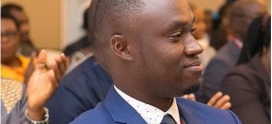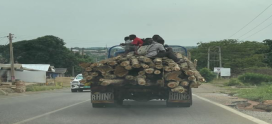
GHANA BEYOND AID vs. POPULACE CONTENT WITH AID
“Let me look after my children now so they can also look after me whiles I am old”. This is one of the most popular sayings from our culture. We are concern about the risk of premature death and the risk that we will live longer than expected but insurance in most cases is not an option. The first place we go to is family and friends when we are in trouble. This has somehow made us feel content depending on others.
The president of Ghana, His excellency Nana Addo Dankwa Akuffo – Addo on his assumption to the office on 7 January 2017, stated categorically his desire to see Ghana manage its natural resources effectively and efficiently to help the development of the country with if any help at all, minimal external financing assistance. The agenda the president call, ‘Ghana beyond aid’. The president also said, we want to build a Ghana that is not dependent on charity and handouts, but an economy that will look at the proper management of its resources as a way to engineer social and economic growth in our country.
Since the president declared this agenda, there have been a lot of writings on this. Most people believe it is achievable when we do away with corrupt people and activities.
My question is, does insurance play any role in achieving this? Yes! Most of the developed countries who usually come to our aid do not have natural resources as we do but they indeed manage the few they have well. We should also not forget the fact that individuals in these developed countries understand and appreciate the existence of risks. They understand and appreciate the importance of insurance which is a risk transfer mechanism. These developed countries believe insurance is the backbone of every economy. A country with limited resources could still develop when it begins to value its resources and determine the risk areas and find measures to minimize these risk factors.
In the simplest form, insurance help to spread the economic impact of a loss on an individual or a business entity or nation.
What’s Ghanaians attitude towards insurance? The big question is, as individuals, business entities, or a nation, would we be able to stand when there is any catastrophe? How well do we value insurance as a country? Have we identified the risk areas associated with our country’s economy? Have we evaluated and measure the impact and the severity of those risks to us? Have we looked at the mechanism to mitigate and control these risks?
Family is very good and it is something which continues to bind us together as one people. Family brings security, protection, support and comfortability. Someone said food tastes better when you eat it with your family. The problem comes in when a particular individual always has to provide for the whole family. The young working generation depends on adults who have made it in life, expecting help when they are in distress. It is never wrong when people sympathise with others when they are bereaved or in trouble. Should they depend on them financially each time?
People work for over ten years and if unfortunately one day they are retrenched, lay – off, or collapse of the company, then they are back home complaining and depending on others financially.
Most people get an accident which brings them permanent disability which takes them from their job and they become a burden on others financially.
People try very hard to build their private dwelling houses and if unfortunately their buildings are damaged, does it means they should be on the street the next morning or move to stay with a relative and depend on them financially? Those who have not built and staying in rented apartments have also been able to acquire some furniture and household contents. They also refuse to transfer the risk of losing these through the fire, flood, the collapse of building, impact, and other perils to insurers. When there is a loss, they depend on family members, churches, friends, co-workers, neighbours and others for support.
Most vehicle owners insure because of the Police. These same persons do not have any clue as to what they will do if their vehicles knock someone down or destroy someone’s property.
Some have complained about the high cost of premium which cannot match up to what others are paying especially in the developed countries. Others too have lost confidence in the insurance companies because of bad services. But have we looked at the cost of paying for insurance and the cost of not doing it when the loss occur? If the individuals who make the country are pleased to depend on aid, how can Ghana go beyond aid?
Can Ghana achieve the dream of ‘beyond aid’ while the populace has not accepted the concept of financial independence? A country is its people. In the same way, a country’s problems or challenges are various individual challenges that have compounded.
We should begin to see ourselves as individuals who have common risks living in a particular area. The simplest thing we can do as individuals is to come together and share our risks. We have to know that, it is not everybody in Ghana that would suffer a loss but definitely, some people will.
Again, the country could introduce other social policies like an unemployment insurance policy or job loss policies as Gershon P. A. will put it in addition to pensions. Those who are privilege working could contribute to a fund and the unemployed could beneficiaries. Anytime someone loses his or her job, they can as well benefit from such funds.
Furthermore, there could be more public education on micro-insurance policies to help protect petty traders and low-income earners. There are other various pension policies in the market for those working in the informal sector.
There are a lot of insurance products in the market giving coverage to most of our exposures, yet most people are not showing interest. Education is the key to everything and basic insurance principles should be taught in basic schools. We should let the populace know the importance of insurance right from the beginning. We need to teach them not to depend on others financially but transfer these risks to insurers.














